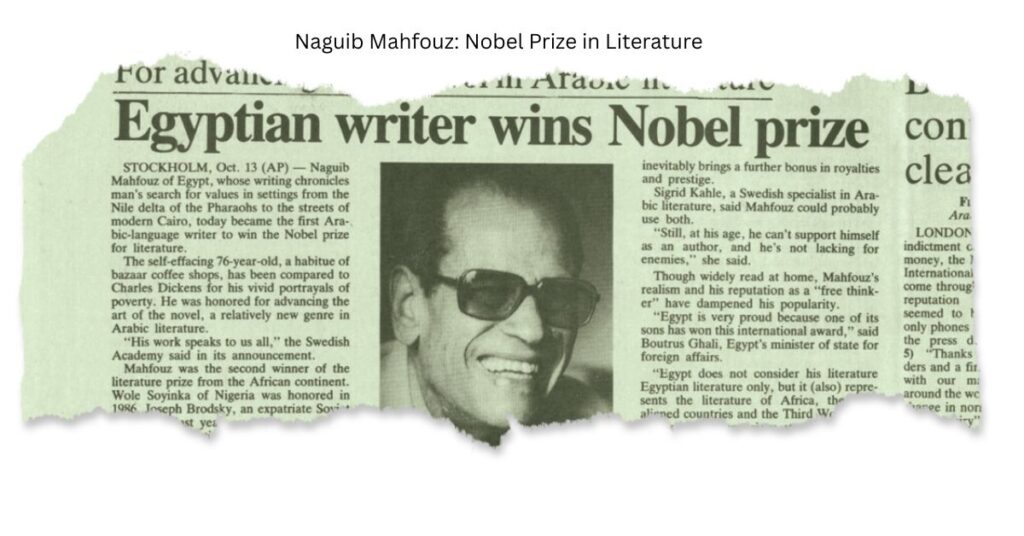Naguib Mahfouz, one of the most celebrated literary figures of the 20th century, holds a distinguished place in world literature. As the first Arab writer to receive the Nobel Prize in Literature in 1988, Mahfouz not only elevated Arabic literature to global recognition but also left behind a profound legacy of storytelling that continues to inspire readers and writers alike.
Early Life and Background
Naguib Mahfouz was born on December 11, 1911, in Cairo, Egypt. Growing up in a traditional middle-class family, he experienced first-hand the vibrant culture and historical richness of Cairo, which later became the central setting for many of his novels. Mahfouz pursued philosophy at Cairo University, graduating in 1934, but soon shifted his focus toward literature, combining philosophical ideas with storytelling.
Literary Career and Works
Mahfouz began his writing career in the 1930s, initially producing short stories and historical novels inspired by ancient Egypt. However, his literary breakthrough came with works set in contemporary Cairo, where he masterfully depicted everyday struggles, social inequalities, and the changing fabric of Egyptian society.
His most acclaimed work is The Cairo Trilogy—Palace Walk, Palace of Desire, and Sugar Street. This monumental series follows three generations of a family, reflecting Egypt’s political, cultural, and social transformations throughout the 20th century. The trilogy cemented his reputation as a literary giant, combining realism with psychological depth.
Mahfouz’s style evolved over time, embracing existential themes, allegorical narratives, and even elements of magical realism. His works such as Children of the Alley and The Harafish showcase his ability to explore moral dilemmas, faith, and the human condition, while still remaining deeply rooted in Egyptian culture.
Nobel Prize in Literature
In 1988, Naguib Mahfouz was awarded the Nobel Prize in Literature, becoming the first Arab author to receive the honor. The Nobel Committee recognized him for his richly textured narratives and his remarkable ability to portray universal human experiences through the lens of Egyptian society. The award marked a turning point for Arabic literature, bringing global attention to the depth and richness of literary traditions in the Arab world.
Influence and Legacy
Mahfouz’s impact extends far beyond his novels. He opened doors for future generations of Arab writers, proving that local stories could carry universal appeal. His works have been translated into dozens of languages and adapted into films, plays, and television dramas, further solidifying his global influence.
Despite facing challenges—including censorship and even a violent attack in 1994 due to his controversial writings—Mahfouz continued to write with courage and integrity. He remained a literary voice for social justice, freedom of thought, and cultural identity until his passing in 2006.
Conclusion
Naguib Mahfouz’s journey from the streets of Cairo to the stage of the Nobel Prize ceremony reflects the power of literature to transcend boundaries. His stories captured the essence of Egyptian life while addressing timeless human questions, making him not only a national treasure but also a universal writer. Through his groundbreaking work, Mahfouz secured an enduring place in the history of world literature and remains a source of inspiration for readers and writers across the globe.





